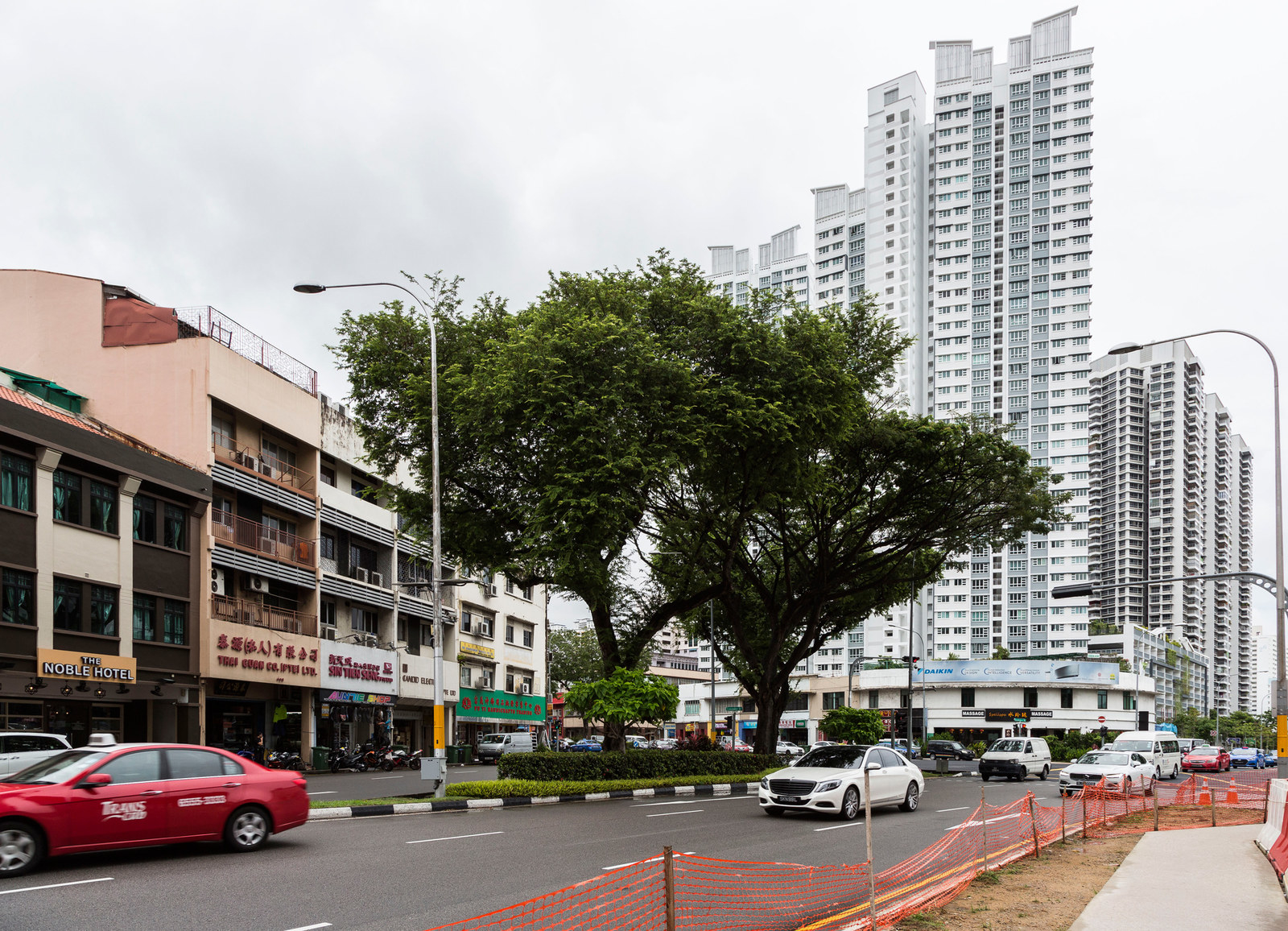SINGAPORE — Irene Clennell has the nervous energy of someone who cannot remember when they last slept properly. Her gaunt face suggests that eating has been a similarly low priority.
Smoking a rolled-up cigarette on the humid balcony of her nephew’s condo in northern Singapore, she is still in a state of shock.
On Sunday morning, Clennell’s life in Britain was brought to an abrupt end. After more than a month being held in Dungavel immigration detention centre in South Lanarkshire, she was taken in a van to the airport with no time to gather even the most basic personal items. She did not get to say goodbye to John, her British husband of 27 years, who she has been caring for full-time since a major operation last year.
Clennell was deported due to the government’s spousal visa system, which requires the British partner to prove they are earning at least £18,600 a year, and the couple to show that they have lived for long stretches of uninterrupted time in the UK. Clennell lost her leave to remain because she spent too long out of the country while looking after her dying parents in Singapore – her last visitor visa expired in 2014 and her subsequent attempts to get a more permanent visa failed.
BuzzFeed News has been with her as she navigates her first few days in exile. It is Tuesday evening and she is sitting on the sofa that has doubled as her bed in her nephew’s flat. The small three-room flat is in a big block in the north of the city. It’s home to three of her nephews, their two wives, and her sister – and it’s already cramped. Outside the front door, a mountain of shoes is testament to the many relatives staying in the small space.
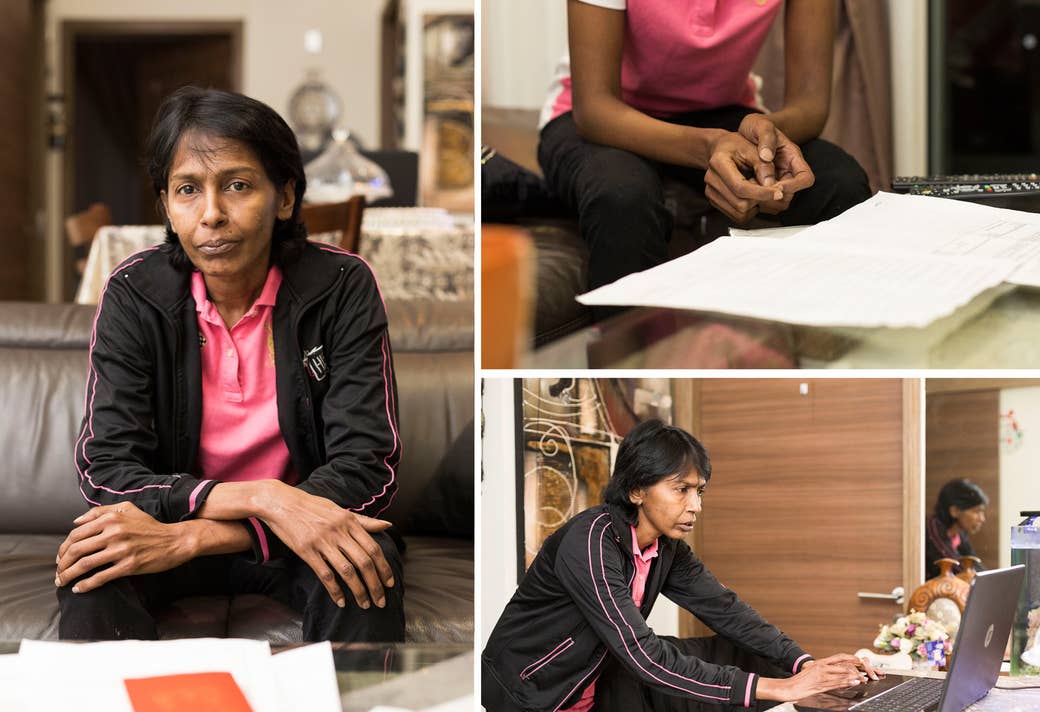
Clennell is worried about outstaying her welcome. “My sister says it’s alright but I can see it’s not fair on her,” she says, glancing at the closed bedroom doors, behind which her family are all hiding. “It’s a small space for seven people. This is their home and it’s not nice for me to be out here and they’re having to be stuck in their bedrooms. I feel really awkward.”
Clennell’s sister Lily is divorced and had herself been sleeping on her son’s sofa. Clennell has so far taken the spot on the sofa as one of her nephews is away, leaving a bed free for Lily. But when he is around there will be nowhere but the floor.
Though she has spent more of her life in Singapore than in the UK, Clennell says she feels a stranger in her own country. “I don’t like going out here. I feel uncomfortable because every time I open my mouth people look at me strangely. My accent is different. When I’m here I just spend time in the room.”
Her husband has been on sickness benefits since last July after a femoral artery bypass in his leg and a subsequent hernia. But on Monday, the day after she was deported, John received a letter from the government saying he was fit for work and would no longer get his employment support allowance (ESA).
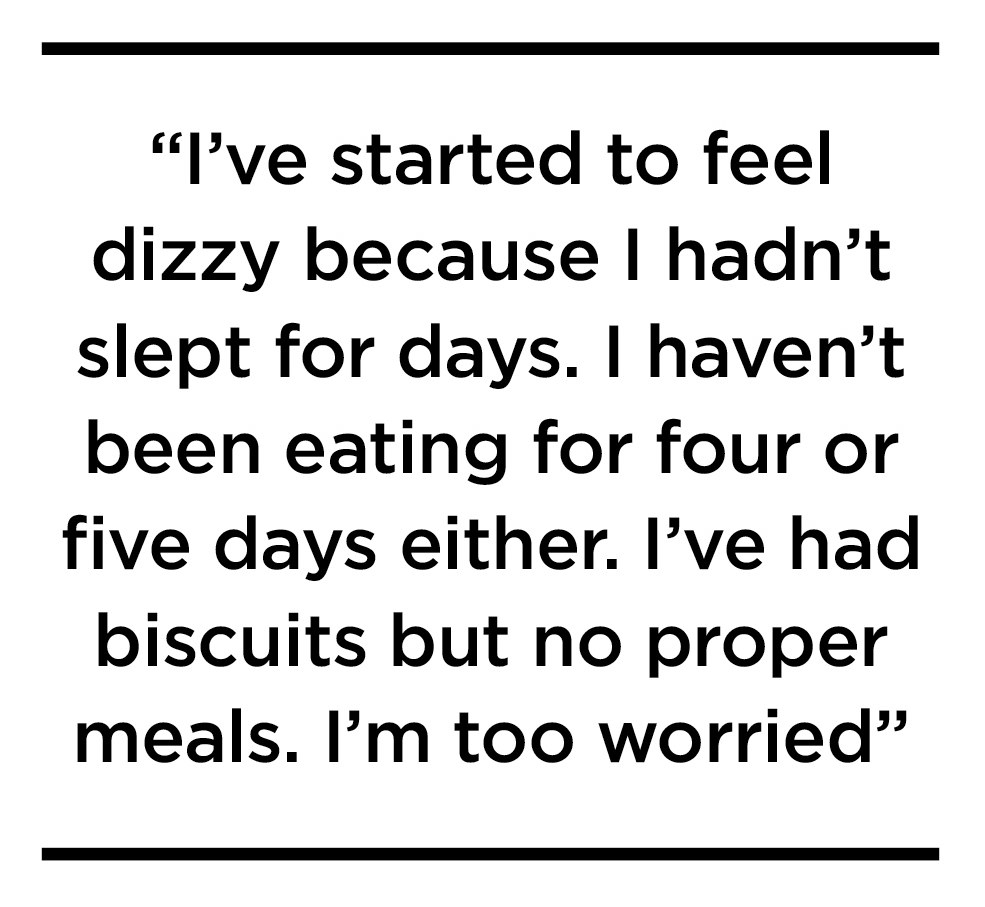
She cannot believe it. “I have to tie his laces for him; he can bang his foot into the shoe but he can’t tie his laces now. He can get his trousers up to his knees, but he can’t pull them up. I have to hold his hand for him to sit down in the bath. You tell me if he’s fit enough to go to work.”
Clennell chats to him about it on WhatsApp and tries to stem her paranoia. “Do you think it’s to do with the government because I’ve said I need to be there for my husband’s illness?” she asks. As her paranoia and sleep deprivation increases, she starts to wonder if her sister-in-law Angela’s landline, which is broken, has been deliberately cut off by the government. “It’s a bit strange for all these things to be happening in a couple of days,” she muses.
When she compares this with her life in Chester-le-Street, County Durham, where they brought up their two sons, John and Sonny, her expression softens. “I don’t feel that I belong in Singapore. Back home I’m often at my neighbours’ houses and always around having a drink. I’ve got one next door and one up the road that I can just drop round to.”
The memory makes her smile for the first time all evening. But then her eyes start to well up. “Karen lives next door and we'll be cooking and she'll shout, 'Have you got an onion?' And I'll say, 'Karen, have you got a potato?'” Another neighbour, Gordon, comes for lunch “without fail every Sunday,” Clennell says. “My Sunday dinner is really good. My Yorkshire puddings are the best.”
She says she's never had such close friendships in Singapore and that in Britain “nobody has ever looked at me as someone different”.
She’s so nostalgic for Britain that in the heat of the Singapore night that she even misses the cold. “I do miss the weather! I never thought in a million years I'd think that, but it's so sticky here and I can't sleep. I miss the UK where it's cold outside but warm in.”
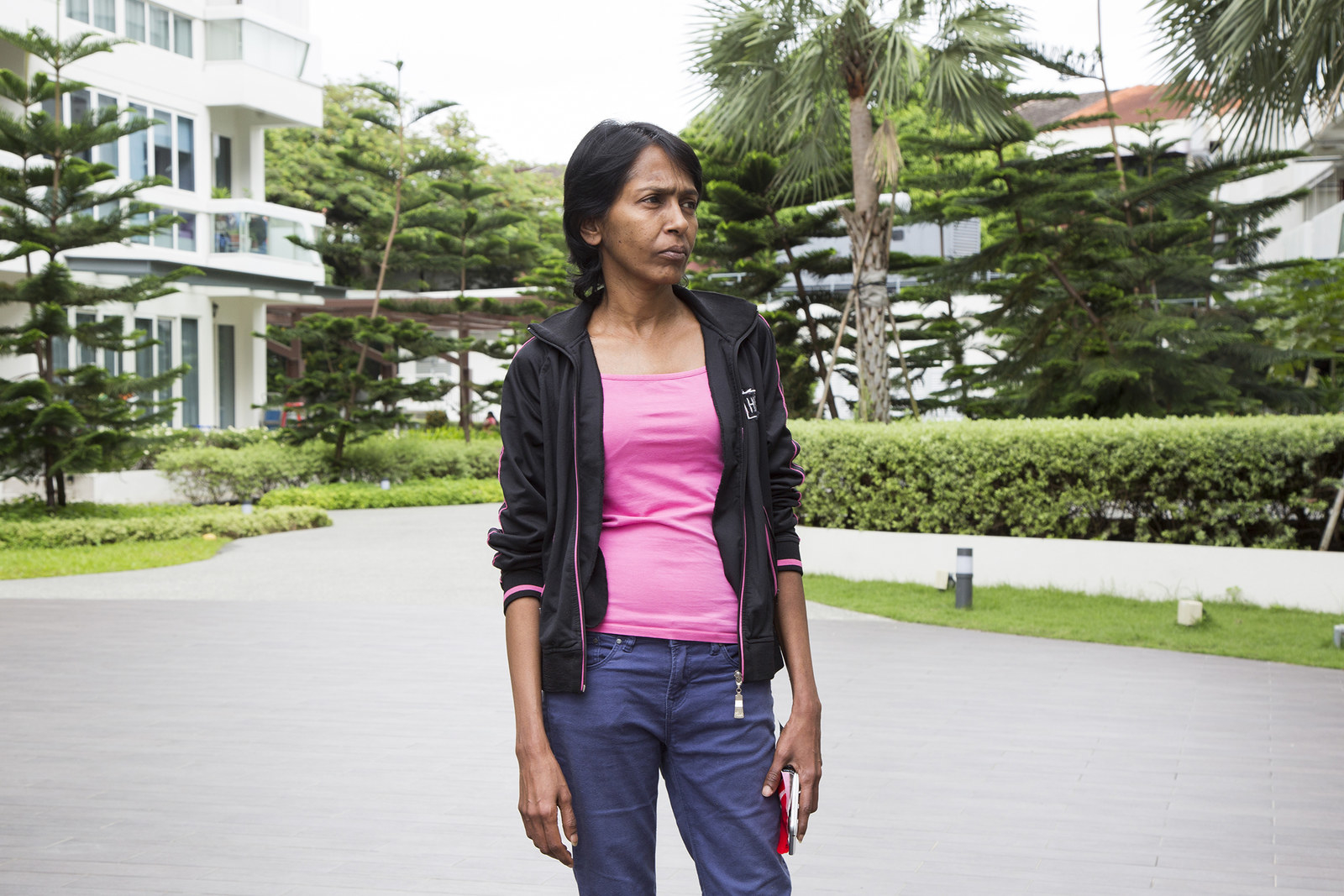
Halfway through the conversation, Clennell's phone chirrups. It is BBC radio asking for another live interview. They ask how she is. “Exhausted,” she replies.
She is getting tired of answering the same questions again and again but feels compelled to keep speaking, hoping the publicity will be her ticket home. While on the phone to the BBC she has five missed calls and now the press agency AFP wants to meet her. She is mystified as to why her story has got so much media attention, with journalists from around the world trying to find her.
“There are lots of things happening with a lot of people," she says, "but I don’t know why on this case already there’s been so much interest. I’ve got all these people calling me. The New York Times has written it too – I didn’t think it would go viral. At times yesterday I was on the phone to a journalist and then my sister’s phone would ring and it was someone saying we’d be live in two minutes.”
She feels panicked. Her mind keeps flitting from one topic to another. “I’ve got so many things in my head, it’s nonstop. All these things, like what should I do next.” As she says this, she realises she’s still not called her sister-in-law to check on how her search for a new lawyer is going.
We follow Irene Clennell, who is now stuck in Singapore after being deported.
Clennell opens a laptop on a small dining table in the living room to check for email updates from campaigners and family. She is staggered that a crowdfunding page that went viral after she was deported now has pledges of almost £50,000.
She is upset at the implication from some that she might profit from all this. “This is not something that I want to do. People asked me how I feel about the money building up but it’s not about the money, because that’s no good to me if I have to stay here. I want to be with my family and that’s it.”
When her sister-in-law calls from her mobile, Clennell visibly relaxes, but she is still worried. “What’s the matter, like?” she says, slipping into Geordie patter. “Most probably the government is spying on you, Angela, because of all this media attention. Did you hear what they’ve said to John about his ESA?”
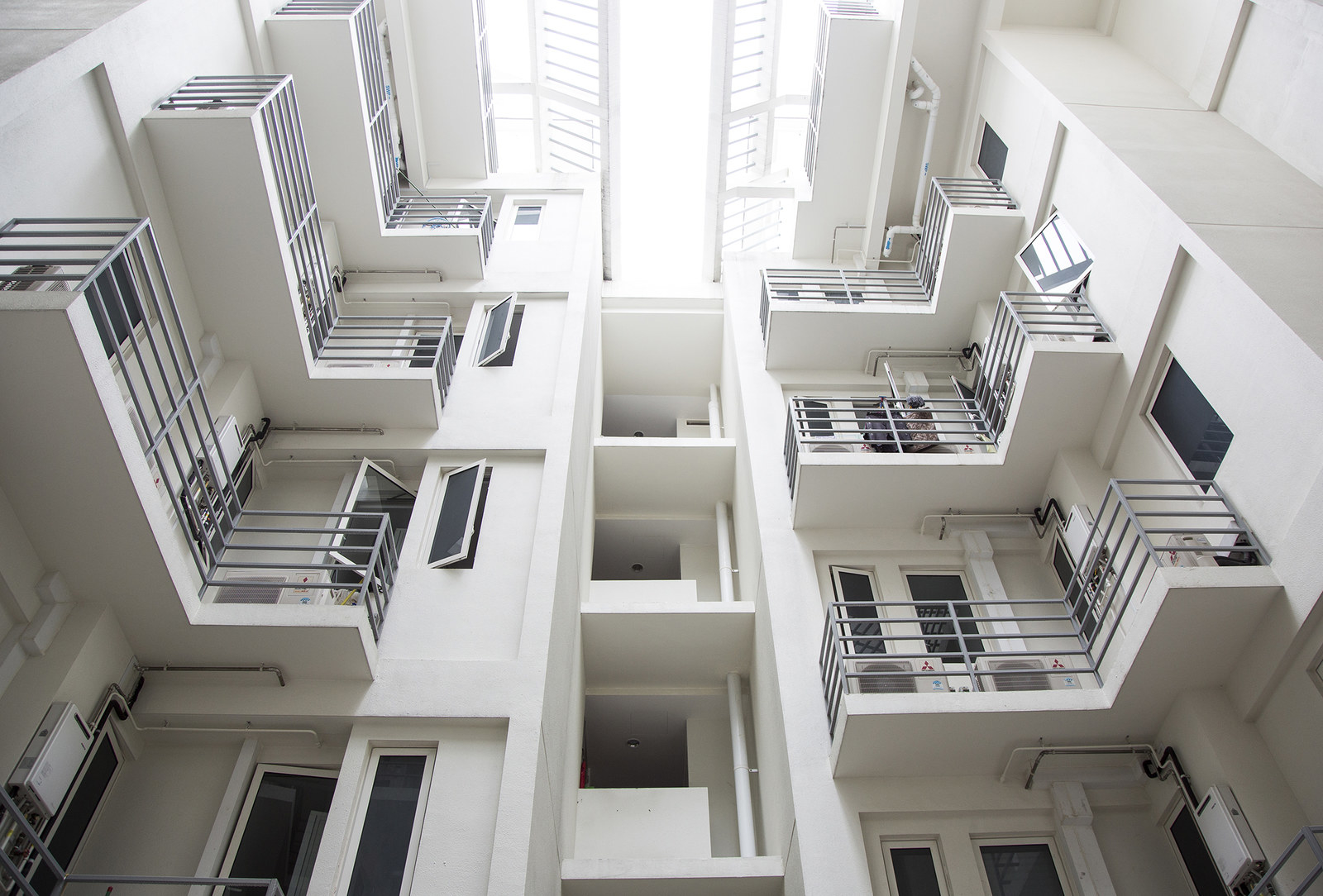
Her relationship with Angela seems much warmer than with her family in Singapore. Clennell has three sisters, though Lily, who she’s staying with, is the only one she says she is close to – and even their relationship seems quite distant. In contrast, she speaks of her in-laws with real warmth. “I love John’s family. They’re a beautiful family. From the time I met them until now they’ve all been really nice and supportive in every way.”
At midnight she still looks wide awake, and the calls from the UK haven’t stopped. “I’ve started to feel dizzy because I hadn’t slept for days,” she says. “I haven't been eating for four or five days either. I've had biscuits but no proper meals. I'm too worried.
“I haven’t got the time to sit and think because of all these calls. I haven’t even had the time to search for a lawyer.”
Lily’s daughter-in-law Radhika, who is Indian and a migrant living in Singapore, cannot believe what Clennell has suffered in order to live in Britain with her husband. “It’s really so sad," she says. "I was asking my husband, how can this happen? In Singapore immigration is strict but my immigration process was simple. I applied and they gave me a two-year long-term pass immediately. Next month I’ll apply for citizenship.
“I couldn’t believe this is what happens in Britain. We’re angry. How can they just do this to her? They never let her take her clothes or see her sons. We are the only people she has here, so obviously we have to accommodate her and help her.”

Clennell’s latest immigration nightmare began on 19 January when she went to an immigration reporting centre in Middlesbrough for a routine appointment. She was detained and driven across the border to Dungavel detention centre in Scotland.
She had nothing with her. “I just wore jeans and I didn’t carry any money, wallet, or anything because when you go in the reporting centre they have to search everything so I’d just go with nothing. That meant when they took me I had nothing.”
After being there for almost six weeks, she found the detention centre was getting to her. On the Saturday before she was deported she went to a nurse for help. “I went to see the nurse and burst out crying. I have a tendency to get depressed. I said, 'I've been here nearly one and a half months and I'm just sick and tired up here [pointing to her head] and I don't know what's happening.'"
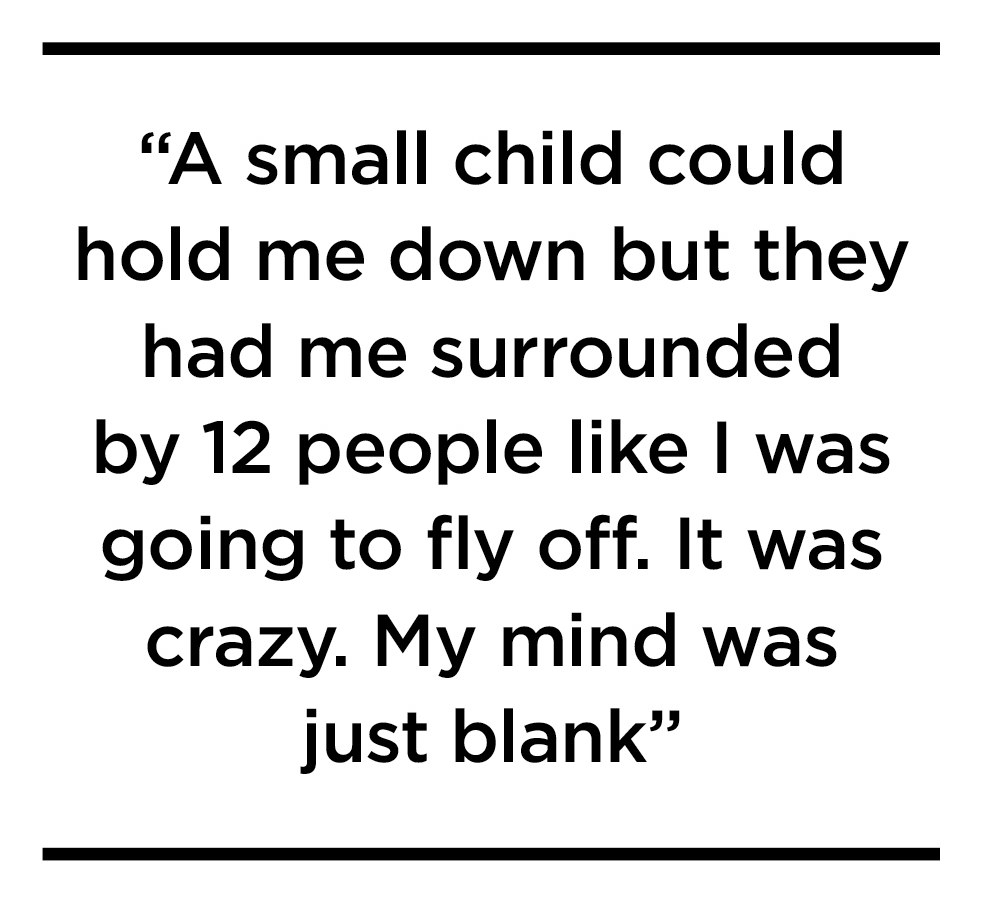
That night she couldn't get to sleep. "I don't know if I somehow knew something was going to happen."
The next morning she was chatting to one of the women who shared her room, when the phone rang and Clennell was summoned to the immigration office. She was wearing tracksuit bottoms that had been given to her by the detention centre over her own pair of jeans, and a jumper she had been meaning to wash for a few days. "I thought I was just going to go and see them and go back to bed," she says. But it didn’t pan out like that.
Once she made it to the office she had just started talking to the officer who summoned her when the atmosphere changed. "Suddenly there were four female officers at one door and another four on the other side." She was ambushed – not that a slight, 5-foot-tall grandmother would have much hope against the detention centre's guards anyway.
“A small child could hold me down but they had me surrounded by 12 people like I was going to fly off," she says. "It was crazy. My mind was just blank.”
Four of the women blocking the exit were there to escort her all the way back to Singapore.
Clennell panicked. “I said they should give me a chance to speak to a solicitor and the manager interrupted and said, ‘You want to call your solicitor, you can do it.’ But I said, ‘How can I call?... This is really trickery, what you did: You’re asking me to call a solicitor on a landline on a Sunday.’”
She still has the paperwork she was given ahead of the deportation. The airline risk assessment for the rushed deportation has a checklist of “key risk indicators”. The two that are ticked as risk factors are “Is the subject known to have committed violent or disruptive behaviour?” and “Is this case known to be subject to high-profile media interest or orchestrated public protest?”.
Clennell is mystified by the first ticked box. “How can they call me violent?” She believes the media interest is behind her rushed Sunday deportation.
On the journey to the airport she was desperate for a cigarette but the guards kept saying she was not allowed. At Edinburgh airport she was taken around with a security guard on each of her arms. “I was trying to hide my face but there was nowhere to hide my face,” she says. “They were treating me like a terrorist. It was really humiliating.”
She was given a phone to make calls on as they travelled to Edinburgh airport. She called BuzzFeed News from it when the plane was on the runway. Recalling the scene, she says: “One of the guards asked me ‘Is that your lawyer you’re calling?’ and I said yes. I didn’t want to say it was BuzzFeed.”
On the first leg of the flight she says the guards told her that if she called a helpline that someone would meet her in Singapore and help her find a place to stay. But when she called the number on a layover in Doha the office was shut. Luckily she managed to get hold of her sister Lily, who ended up meeting her at the airport.
But the guards offered little reassurance of what a plan B would have been. “When we reached Singapore, they said: ‘If there’s no one outside then you’re on your own; it’s your country, they have to do something about it,’” Clennell recalls.
When she left them at the airport, the four security guards were headed to a hotel on Orchard Road for the night. “Places there are at least 300 dollars a night,” she says, marvelling at the cost of removing a grandmother from her home.

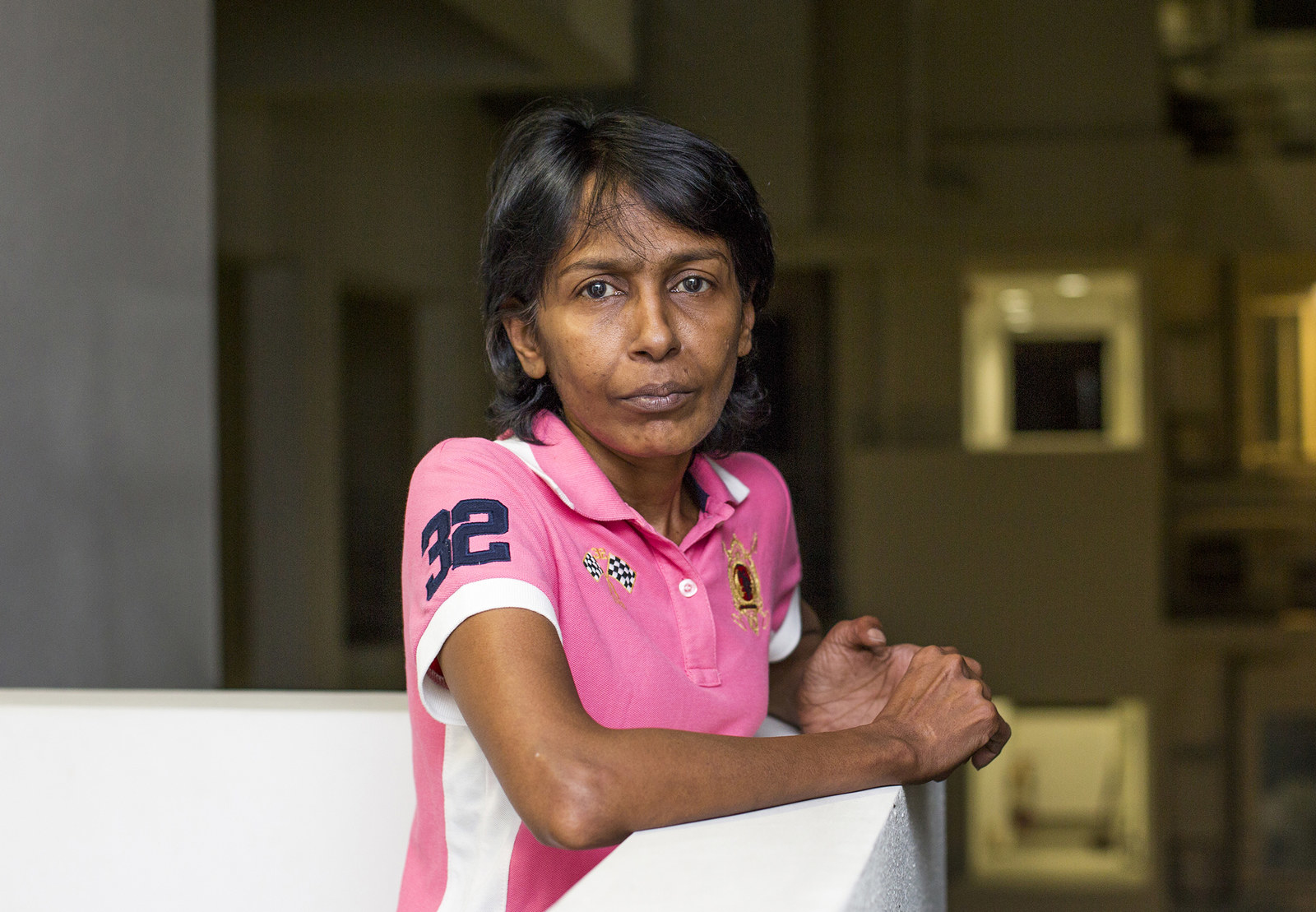
So how did a woman with a British husband, British children, and a British grandchild end up in this situation? There is no denying that Clennell’s immigration history is complicated.
Over the last three decades, she has built a life in Britain. But because those years have been interspersed with extended periods in Singapore – first for five years in the '90s with her husband and two sons when John had a job out there, and later alone, caring for her dying parents and renting out her flat – she has become locked out of Britain’s immigration system.
In September 2001 she celebrated her elder son John’s 10th birthday in County Durham before heading to Singapore to sort out a flat she owned and rent it out. “I missed my kids but I was only planning to go for a short while and come back,” she says. It took longer than she expected sort to organise the rental and save enough money to fly back again.
In 2003 she came back to the UK on a visitor visa and has been battling with the Home Office ever since to get a more permanent visa. Between 2003 and 2004 she put in four separate applications for leave to remain and they were all rejected because she had been out of the country for more than two years, invalidating her earlier leave to remain.
In 2005, with all her attempts to get a permanent visa in Britain exhausted, she was forced to return to Singapore. She didn’t stop trying to come home. In 2007, two days before Christmas, she arrived in the UK but was refused leave to enter as a visitor. She showed her marriage certificate and the border official said they didn’t believe she was only visiting and put her on the next flight back to Singapore.
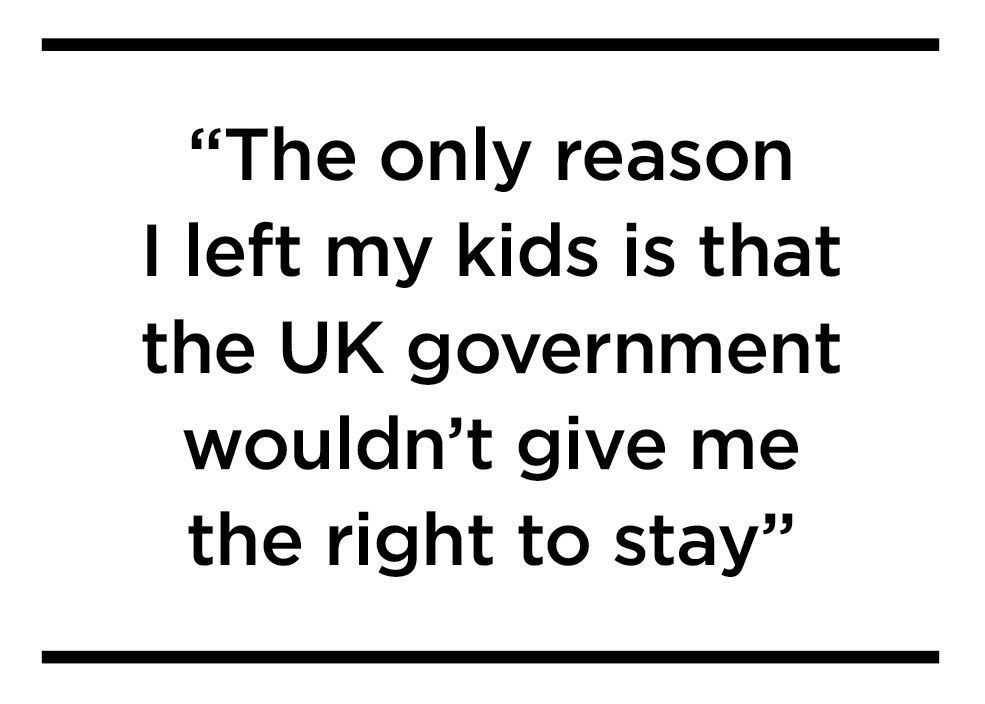
The following year her father was diagnosed with cancer and she stayed in Singapore caring for him until he died. Within days of his death she tried again to get a visa to go back to Britain, but again her application was rejected.
“After my father passed away I had nowhere to go," she says. "So from 2010 to 2013 I was in India working as a forex trader."
Finally, after eight long years locked out of Britain, she tried entering Britain on a visitor visa from India, where she had been working while trying to think of a way to get home. It was 2013 and she turned up at Heathrow airport and tried her luck. She recalls: “The border official said, ‘Why didn’t you see your kids for eight years?’ and I said, ‘Because I couldn’t get in.’” He took pity on her and gave her a six-month visitor visa.
When she landed in Singapore last Sunday she felt a horrible sense of history repeating itself. “I just felt it’s all got to happen again. It took me that long to get back to the UK in 2013. I’m thinking every day at a time because I’ve gone through a similar situation before.”
Her son John still hasn’t forgiven her for the eight years she was stuck outside the country while he and his brother were children. “He’s a bit frustrated but he won’t say it. Last time I saw him I said, ‘My visa application got rejected and I have to go back.’ I haven’t seen him since but I think the reason he’s staying away is he feels every time they get close to me I go away.”
Clennell gets upset remembering how long she was kept apart from her family. “The only reason I left my kids is that the UK government wouldn’t give me the right to stay and I couldn’t bring the kids here with me because John wouldn’t allow it. I think now I can say that my relationship with my kids was spoiled by the Home Office.”
She is in regular contact with her younger son, Sonny, who called her while she was in detention. “He was asking me when was I going to get out and was I comfortable. He’s moved back in with John now. I’m glad John’s got company.”

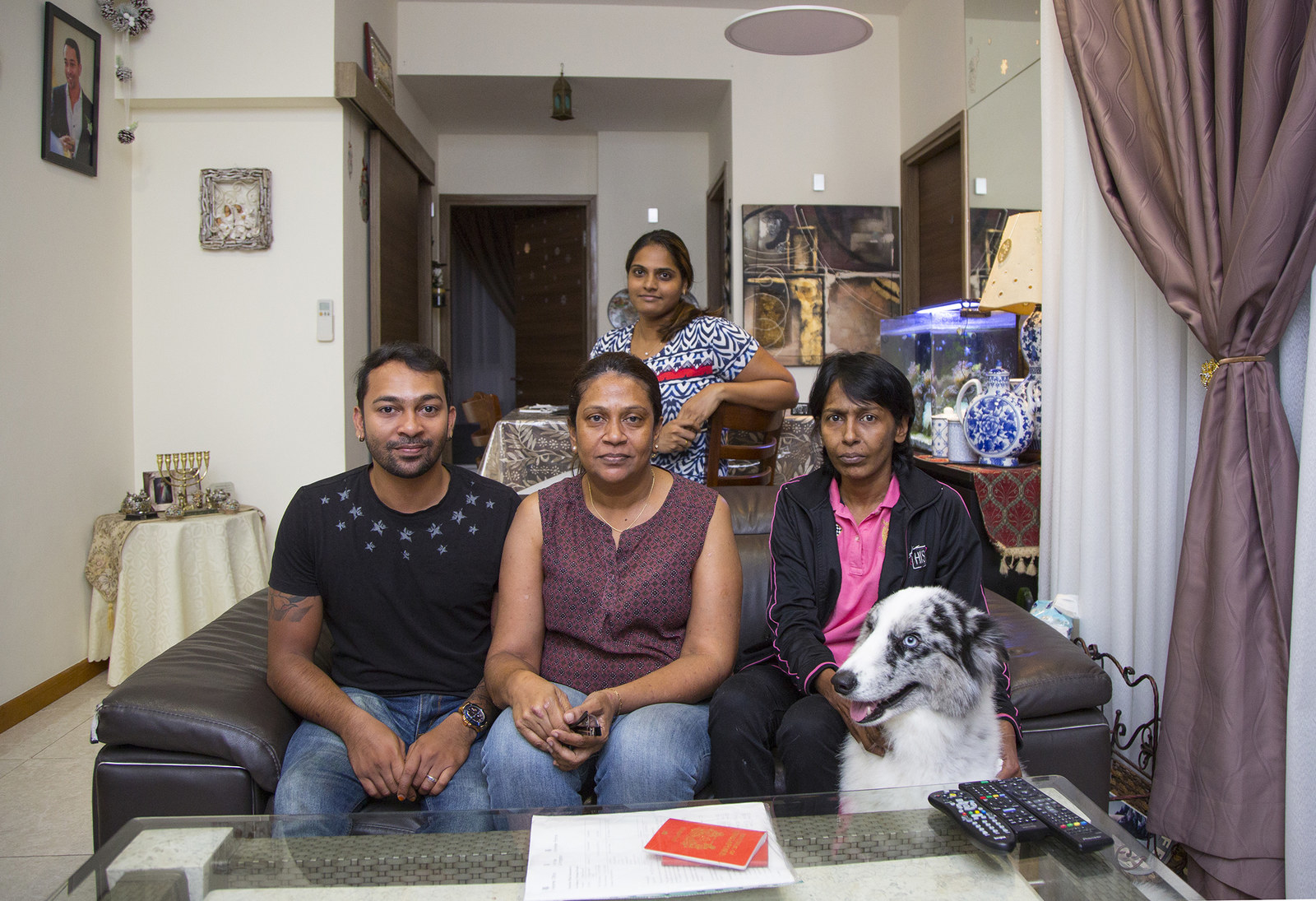
Clennell always dreamt of living in Britain. “Singapore just doesn’t feel like home,” she says. “Even when I was young I was always thinking of the UK. I used to read through magazines and think, I have to be there one day.”
She arrived in London in 1988 and soon got a job as a receptionist at the Merchant Navy Hotel in Lancaster Gate. Every night a gang of the girls who worked and lived there would all go to the pub across the street. John had a job nearby as a demolition worker and would often be in the same pub. She wasn’t interested at first but he continued to woo her, buying roses and chatting to her over pints at the bar.
One night she saw him differently. “It was just before Christmas and he was sitting at the bar crying. His father had passed away.” She was upset to see him so distressed and when she comforted him, he asked her out again. This time she didn’t say no. Two years later they were married and she was pregnant, so they moved to County Durham to be near his family.

It is Wednesday morning in Singapore and Clennell looks even more exhausted and agitated. Her sister-in-law Angela has been in touch overnight to say The Sun has written an article asking if the Home Office was right to deport her. Angela also told her that on Tuesday the paper had been going door-to-door asking neighbours about Clennell’s character.
She looks again and again at the story on a laptop. “It's so frustrating when you read your story and it's all wrong,” she says. “And it’s not just what the paper said, it’s the comments under the piece too.” Though she has never denied that she was out of the country for 15 years in total, she says The Sun’s timeline is mixed up and she's upset by the way it tells the story.
She is so tired that at times she can barely speak. “I didn't sleep until 6:15 this morning and then I only dozed for a little bit and heard people getting up,” she says, holding her head in her hands. “My eyes are hurting. I can't think straight.”
Her sentences start to jumble and her hands shake. “If my brain had a voice it would be screaming out,” she says. “It's constantly like I'm going mad. Even if I try not think about it, question after question comes up. There's too much going on in my head. I need sleep but I can't get sleep.”
The constantly moving media story contrasts with the lack of action on her case. She is in the process of instructing a new lawyer, but everything moves glacially. She is desperate to come home and knows that if she doesn’t successfully launch a new legal case in the next 28 days, she will be barred from re-entering the UK for 10 years and is likely to struggle to get a visa after that.
Clennell’s sister Lily stops to chat on her way out to work. She is still visibly upset by what her sister has been through. “Without any notice they have sent her back. We never expected this; we thought they would definitely help her.”

When Lily collected Clennell at the airport she was shocked at how different she looked to the last time she dropped her there in 2013. “I took her to the airport when she was going back to London," Lily says. "She was well dressed with good luggage. Coming back, looking at her I was very sad. Very sad. The way that she looked, the bag that she carried. That bag, in Singapore it only costs a dollar. Coming back from London carrying a bag like that. It was very hurting to look at her that way.” She blinks back tears recalling the scene.
In the Happy Village café round the corner from the apartment they are serving one of Clennell’s favourite dishes, chilli crab, but she can't eat. Her nephew buys a big plate to share but she can only manage coffee; she is still too anxious to eat. “When I was in the UK I was desperate to think about food in Singapore," she says. "I wished for chilli crab so much that I used to go on YouTube and watch ‘how to make chilli crab’ videos. But now I’m looking at it I feel different. I’m not relaxed.”
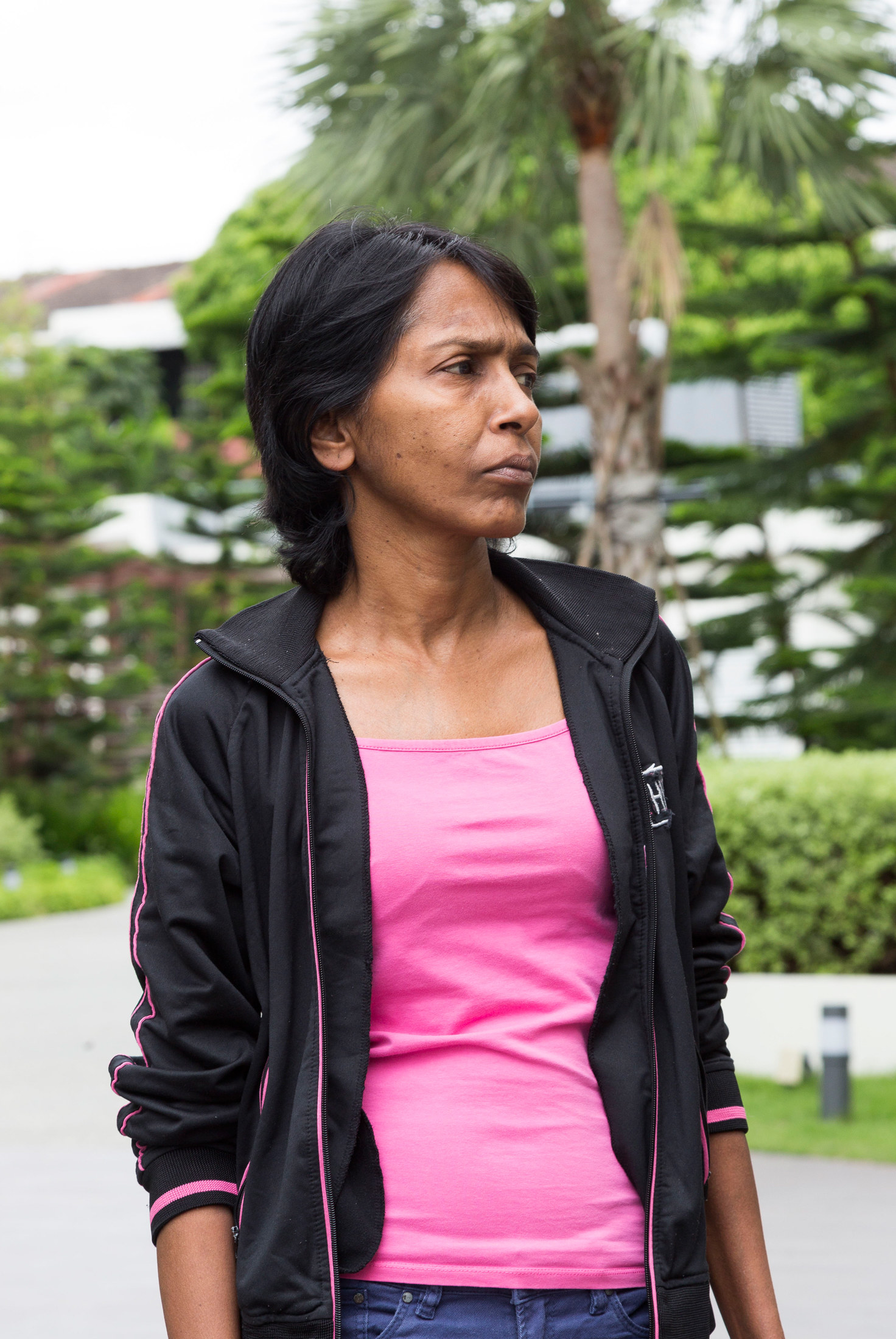
John is now so desperate to have her home that he has written to a minister in France to ask if they could live together there. He does not want to come to Singapore – which in any case would be impractical given the cost of his healthcare. At least in France, she says, “if he had a medical problem he can go back to the UK”.
Having worked as a gas engineer and paid taxes, John is livid at the treatment of his wife. Speaking to BuzzFeed News before her deportation, he said: “I just can’t believe this is happening. It’s a disgrace. She hasn’t claimed any benefits here and I’ve worked nearly all my life, so I can’t see what the problem is. She doesn’t cost the state anything.”
The Home Office does not usually comment on individual cases but issued a statement to BuzzFeed News saying: “All applications for leave to remain in the UK are considered on their individual merits and in line with the immigration rules. We expect those with no legal right to remain in the country to leave.”
Clennell is still kicking herself for not realising sooner how easy it would be to lose her visa rights in Britain. “When you don’t know the danger of something you can put your hand in and not realise what you’re getting into,” she says. “But all that hits you when you know you can’t go back into the country. I didn’t think it would be a big issue but in 2003 when they rejected my application, that's when the problems started.”
Now she just wants to be back home with John. She says it should be simple: “People get married for a reason: because they want to be with their husband and family for the rest of their life.”
Many would give up hope at this point, but Clennell is determined to be reunited with her family. “If there are enough people fighting and giving support, I think I will get back to Britain.”
